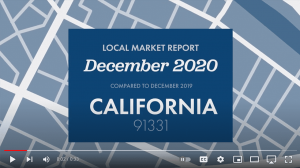In a highly competitive real estate market, developing a strong brand identity and differentiating yourself from competitors is essential for sustained success. One innovative marketing strategy that is increasingly gaining traction among real estate professionals is the use of influencers – leveraging their reach, credibility, and trust with their followers to amplify your brand and drive tangible results.
In this in-depth guide, we will discover the growing significance of influencer marketing in the real estate industry, explore best practices for identifying and collaborating with relevant influencers, and delve into real-life examples of successful influencer marketing campaigns. Learn how to harness the power of influencer marketing to effectively promote your properties, cultivate your brand identity, and boost your real estate business.
At Zentap, we understand the unique benefits of influencer marketing for real estate agents and offer a comprehensive platform designed to support and streamline your marketing efforts. With our industry-tailored tools, resources, and insights, you can successfully collaborate with influencers to captivate your target audience, generate buzz around your properties, and drive meaningful results for your business. [CTA at the end of the introduction: Partner with Zentap to enhance your real estate marketing strategy with the influential impact of influencers, and unlock unparalleled growth and success in a competitive marketplace.
Amplify Your Real Estate Brand with Influencer Marketing
In today’s competitive real estate landscape, standing out from the crowd is essential, and influencer marketing is an innovative approach with the potential to propel your success. In this comprehensive guide, we’ll explore the growing importance of influencer marketing, identify best practices for collaboration, and discuss real-life examples of successful campaigns. Let’s dive in and learn how to harness the power of influencers to elevate your brand, drive leads, and supercharge your real estate business.
The Rising Significance of Influencer Marketing in Real Estate
Influencer marketing has emerged as a game-changing strategy within the real estate industry, offering several key advantages for agents seeking a competitive edge:
Expanding Reach: Influencers have a dedicated and loyal following, enabling you to tap into their audience and expose your brand to a larger market.
Enhancing Credibility: Partnering with a trusted influencer adds a layer of credibility to your brand, fostering trust and confidence among potential clients.
Targeted Messaging: Influencers understand their audience’s preferences and interests, allowing you to fine-tune your messaging and appeal to a niche demographic.
Driving Leads and Sales: Influencer endorsements have a powerful impact on decision-making, leading to increased inquiries, viewings, and property conversions.
Best Practices for Identifying and Collaborating with Relevant Influencers
To maximize the impact of your influencer marketing efforts, utilize these best practices for identifying and collaborating with the right influencers:
Define Your Target Audience: Before selecting influencers, define your target audience and their preferences to ensure a successful collaboration. Look for influencers whose followers align with your ideal client demographic and interests.
Research and Vet Potential Influencers: Thoroughly research potential influencers, focusing on engagement, credibility, and content quality. Take note of their history of working with brands and the success of their previous partnerships.
Establish Clear Goals and Objectives: Clearly define your campaign objectives, such as increasing brand awareness, generating leads, or promoting a specific property, to shape your collaboration and maximize results.
Develop a Creative Strategy and Partnership Agreement: Create a strategic plan outlining your content approach, expectations, and key performance indicators (KPIs). Establish a partnership agreement detailing responsibilities, deliverables, and compensation for both parties.
Measure and Analyze Results: Track the success of your influencer campaign using metrics such as engagement, reach, conversions, and ROI. Use this data to assess the effectiveness of your collaboration and fine-tune your strategy.
Types of Real Estate Influencer Collaborations and Campaigns
Depending on your goals, you can explore various types of influencer collaborations and campaigns in the real estate industry:
Property Showcases and Virtual Tours: Collaborate with influencers to showcase your properties and offer virtual tours for their audience, generating excitement and enhancing visibility.
Neighborhood and Community Guides: Partner with influencers to create engaging neighborhood and community guides, highlighting the local lifestyle and amenities to attract potential buyers.
Event Marketing and Launches: Leverage influencers to promote property launches, open houses, or industry events, leveraging their reach and credibility to drive attendance and boost interest.
Educational and Promotional Content: Engage influencers in creating educational content, such as buying or selling tips, market updates, or home improvement ideas, offering value to their audience while positioning you as an expert in the real estate industry.
Real-Life Examples of Successful Real Estate Influencer Marketing Campaigns
Numerous real estate professionals have paved the way for influencer marketing success in the industry:
High-End Property Promotions: Several luxury real estate agents have partnered with high-profile lifestyle and travel influencers to promote high-end properties, leveraging their broad audience and aspirational content to generate excitement around exclusive listings.
Local Influencer Campaigns: Real estate professionals have had success collaborating with local influencers to create content focused on the neighborhoods, schools, and businesses in their target markets, connecting with potential clients on a more personal level.
Expert Commentary and Analysis: Influencers with expertise in finance, investment, or home design have worked alongside real estate agents to offer in-depth analysis and insights, adding credibility and attracting a more engaged audience.
Conclusion
Collaborating with influencers can elevate your real estate brand, expand your reach, and drive tangible results in a competitive industry. By identifying relevant influencers, carefully planning your collaborations, and exploring various campaign formats, you can tap into the transformative power of influencer marketing to boost your real estate business.
Partner with Zentap to enhance your real estate marketing strategy and unlock unparalleled growth and success in a competitive marketplace with the influential impact of influencers. Our comprehensive platform, advanced tools, and industry-specific insights empower you to seamlessly integrate influencers into your marketing efforts and captivate your target audience. Discover the potential of automated social media posting and influencer marketing for your real estate business—experience the benefits and features offered by Zentap today.

 Login
Login









